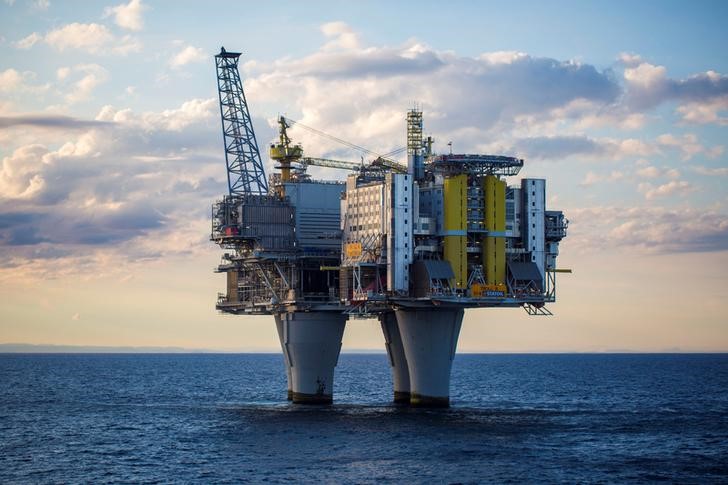* Trump will accept invitation to meet Kim Jong Un -White House
* Place, time of meeting yet to be determined -White House
* But markets capped by soaring U.S. crude oil output
* U.S. to soon overtake Russia as world's biggest oil producer
By Henning Gloystein
SINGAPORE, March 9 (Reuters) - Crude oil futures rose on Friday as Asian stock markets gained on news that North Korean leader Kim Jong Un will meet with U.S. President Donald Trump.
The two will likely meet by May and Kim has pledged to refrain from further nuclear or missile tests, South Korea's national security chief said late on Thursday after briefing White House officials on talks between Seoul and Pyongyang. White House said Trump would accept the invitation at a place and time to be determined. news lifted Asian stocks markets, and pulled crude oil futures along with them, traders said. crude futures LCOc1 were at $63.95 per barrel at 0102 GMT, up 34 cents, or 0.5 percent, from their previous close.
U.S. West Texas Intermediate (WTI) crude futures CLc1 were at $60.39 a barrel, up 27 cents, or 0.45 percent. WTI also fell by more than 2 percent the previous session.
Beyond geopolitics, oil markets were mainly concerned with soaring output from the United States C-OUT-T-EIA , which has risen by 23 percent since mid-2016, to 10.37 million barrels per day (bpd).
That's more than top exporter Saudi Arabia produces. Only Russia pumps more, at almost 11 million bpd.
"It seems only a matter of time before the U.S. becomes the biggest oil producer in the world. The main question which keeps investors busy is when exactly this will be reached," Hans van Cleef, senior energy economist at Dutch bank ABN Amro, said in a note to investors.
Unlike Middle East producers, where output is largely dictated by state-owned oil companies, U.S. producers drill and sell purely based on economics. If prices remain at current levels or rise further, U.S. drillers are profitable and will raise output; if prices stumble, U.S. production will fall.
"The correlation between the U.S. oil production and the oil prices will remain considerable," van Cleef said.
As much as on production, oil prices will depend on demand.
"Global demand will continue to grow by 1.5 million barrels per day in both 2018 and 2019. This would offer enough room for U.S. oil producers to increase production and for OPEC and her allies to minimalise the production cuts towards the end of 2019," van Cleef said.
The Middle East-dominated Organization of the Petroleum Exporting Countries (OPEC) and Russia since 2017 have been leading an effort to withhold production to prop up prices.
<^^^^^^^^^^^^^^^^^^^^^^^^^^^^^^^^^^^^^^^^^^^^^^^^^^^^^^^^^^^ GRAPHIC: Russia vs Saudi vs U.S. oil production
http://reut.rs/2FrFVMF
^^^^^^^^^^^^^^^^^^^^^^^^^^^^^^^^^^^^^^^^^^^^^^^^^^^^^^^^^^^>
